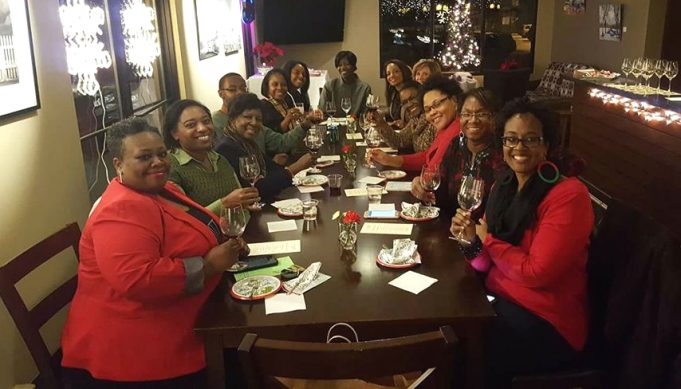Like many young professionals in Madison, Dawn Crim moved to the city for a job with little intention of staying long-term.
Fast forward 21 years: she and her husband, Elton Crim, are still working at the University of Wisconsin-Madison while also working to help more black professionals do as they did and stay.
“Around year seven or eight we had to wonder what are we going to do here,” said Crim. “But we decided to stay and get engaged in the community.”
From there she and 19 other young professionals of color founded the Madison Network of Black Professionals in August of 2004.
Originally a multicultural network, the goals of the group were to obtain a seat at the table for people of color, particularly when it came to creating policies that often did not include or address the needs of minority communities at the time, according to Crim who is also the current president of the network.

Now the network still has a multicultural membership, but focuses primarily on issues facing the black community. Its efforts have expanded to meet the social and personal needs of its members as well as professional so that people can feel more grounded in the community. Its membership has grown from 20 to 80 paid members who have careers that span virtually every industry including banking, real estate, non-profit, insurance, education, government, law, politics and much more.
“When people come, they oftentimes are the only (black person) at their jobs. If they’re not the only one the upward mobility is limited, and they have trouble connecting to the black community because there’s no home base,” said Crim. “You’re just looking for your place in this community, and it’s hard to find, so within three to five years you’re trying to figure out if this is place for you.”
The lack of retention for black people makes it difficult to build sustainable spaces and change, Crim said.

“We have people who come here for school and some stay, but many leave, so we have to push the reset button over and over again,” Crim said. “You don’t get systemic change when you keep hitting the reset button. You get a little excitement and a little movement, but then it’s one step forward and two steps back.”
To combat that, Madison Network of Black Professionals hosts monthly networking luncheons on the first Tuesday of each month and social networking mixers called “First Fridays” at the beginning of every month which take place at various downtown restaurants. It’s a social get-together with free food, music, dancing, and networking.
The luncheons are hosted by different community organizations throughout the city to allow members to see different parts of the city and become familiar with the work being done and resources that are available.
Both the luncheons and the mixers are open to anyone interested in connecting with other black professionals. The MNBP also hosts their Annual Summer Picnic at McKee Farms in Fitchburg, a festive affair where members get together and barbecue, socialize, and play board games and dominoes.
The network also meets regularly with the mayor of Madison, the superintendent of MMSD, the Dane County Executive, and a high administrator with the University of Wisconsin-Madison, so people can be tooled with the insight to navigate their city. This allows them to feel more connected to the community as their own.
As for professional development, the network hosts events that address culturally specific needs of Black people in the workplace, like dealing with racial bias and microaggressions or barriers to an employee not moving up in the workplace.
Currently, Crim is putting a panel to discuss the roles of Chief Diversity Officers in many organizations. These positions have become much more popular in the city following the 2013 Race to Equity report, said Crim.
“My question is what are they doing and how can those who are in these organizations connect with the resources to actually address some of the issues,” said Crim. ““Right now, organizations think they’re done because they hired one, but many are not networked within the whole organization to make systematic changes.”
Since the creation of the network Crim has seen an increase in community engagement.
“We have the community’s ear now and we’re seeing more leaders emerge and organizations start and we see a greater voice,” said Crim.




























